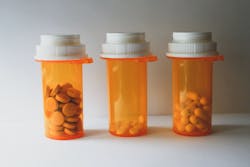NIH clinical trial to test antibodies and other therapeutics for COVID-19
A Phase 2 clinical trial will evaluate the safety and efficacy of potential new therapeutics for COVID-19, including an investigational therapeutic based on synthetic monoclonal antibodies (mAbs) to treat the disease, according to a press release from the National Institutes of Health (NIH).
Researchers sponsored by the National Institute of Allergy and Infectious Diseases (NIAID), part of NIH, are working with clinical sites to identify potential patient volunteers currently infected with SARS-CoV-2, the virus which causes COVID-19, who have mild to moderate disease not requiring hospitalization. They will be invited to take an experimental therapy or a placebo as part of a rigorously designed randomized clinical trial. The trial, which is known as ACTIV-2, also may investigate other experimental therapeutics later under the same trial protocol.
If the investigational mAbs show promise, the study would expand from a Phase 2 to a Phase 3 trial to gather additional critical data from a larger pool of volunteers without delay. The trial will be led by the NIAID-funded AIDS Clinical Trials Group (ACTG) and will enroll participants at sites around the world.
ACTIV-2 was established as part of NIH's Accelerating COVID-19 Therapeutic Interventions and Vaccines a public-private partnership program instituted to speed development of the most promising treatments and vaccines. The design of the study is adaptive to enable maximum flexibility in the shortest time frame. If the experimental treatment appears effective in the first stage, the treatment can be advanced rapidly to testing in larger groups of volunteers. The study also can be adapted to test additional therapeutics.
The first therapeutic to be tested in this trial will be LY-CoV555, an investigational monoclonal antibody made by Eli Lilly and Company, Indianapolis, Indiana. LY-CoV555 emerged from Lilly's collaboration with AbCellera Biologics, Vancouver, British Columbia. Antibodies are infection-fighting proteins produced by immune cells. So-called neutralizing antibodies target specific viruses or other pathogens. This antibody, which was discovered by AbCellera in collaboration with NIAID's Vaccine Research Center, was isolated from a blood sample from a recovered COVID-19 patient. Copies of this antibody were then synthesized in a lab-the term "monoclonal" refers to these laboratory-manufactured antibodies.

